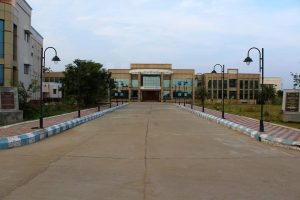About the Conference
The concept of justice has been debated upon for millennia. It has been one of the most exciting and controversial ideas. It has been debated on at least three fronts. In the first place, in terms of what constitutes justice. As a second point, the concept of justice has been affected by normative evaluations; accordingly, various explanations of justice have been predisposed to the normative impetuses of the commentators. Third, the topic of what constitutes justice has been at the centre of the debate over good laws. An analytical breadth has been reached on the question of what are excellent laws when justice at the practical level is always given according to the law.
Every society’s definition of justice has evolved through time. In India, societies evolved an understanding of justice throughout the past from the evolution of the conception of justice as unequal castes, genders and communities in pre-modern times to ideas of justice based on English Legal Principles in modern times; and justice as expanding capacities in post-modern times.
Political ideologies, religious beliefs, cultural intolerance, poverty and hunger, gender discrimination, abuses of human rights, and inequality, among other social handicaps, have prevented common people’s access to justice even since independence.
Objectives
- To bring out the different ideas of justice through time.
- To trace the idea of justice followed by different rulers who ruled the various kingdoms in the ancient and medieval periods.
- To understand the idea of justice followed by the British during their rule and ideas of justice used to gain independence from the British.
- To observe the evolution of the idea of justice since independence.
About the Legal Centre for History of South India
The Centre is the brainchild of the Vice-Chancellor, Prof. (Dr.) V.S. Elizabeth who is a Professor of History and has teaching experience of nearly 40 years. In the year 2020, the Government of Tamil Nadu sanctioned an initial grant to set up a Legal Centre for History of South India at TNNLU and the Centre was established in the same year. The Centre is located in the capital of the Cholas in the Sangam period, i.e., in the 3rd Century B.C. It passed through the hands of the Pallavas, the imperial Cholas, the Pandyas, the Delhi Sultanate, and the rulers of Vijayanagara. Tiruchirappalli was also a battlefield in the Carnatic Wars of the 18th century during the administration of the East India Company.
Legal Centre for History of South India, TNNLU, Tiruchirappalli is the first of its kind among the National Law Universities, setup exclusively for collecting data on the legal history of South India in general, and specifically of the Legal History of Tamil Nadu. The Centre’s mission is to carry out in-depth research, initiate discussion, and discourse upon several areas of legal heritage and to understand their relevance to today’s legal system, as well as to provide training in the teaching of legal history and a platform for exchange of information.
Call for Papers
The National Conference on “Tracing the Idea of Justice from the Pre-Independence period to the 75th year of India’s Independence”, organized by the Legal Centre for History of South India, Tamil Nadu National Law University, Tiruchirappalli will be held on August 20, 2022.
The Conference invites contributions in the form of full-length scholarly papers documenting original and substantial research work.
Theme
The theme is “Tracing the Idea of Justice from the Pre-Independence period to the 75th year of India’s Independence”. Participants are free to write on any topic directly connected to the central theme and objectives of the Conference.
Eligibility
The conference is open to students (UG and PG), Research Scholars and Academicians.
Registration
The Registration Fee for Students is Rs. 300/ and Rs. 500/- for Research Scholars and Academicians. (For bank details refer the brochure.)
An abstract of 300 – 500 words with a maximum of five key words must be submitted within 11:59 PM on or before 18 March 2022 in the registration link given below.
Registration link: HERE
Submission Procedure
- Please maintain due diligence while filling the Google form. The credentials of participants will be checked for successful registration.
- The paper shall be 3000 – 5000 words (excluding footnotes) must be submitted within 11:59 PM on or before on 31 May 2022 to ncij@tnnlu.ac.in upon acceptance of abstract.
- Manuscripts are screened for plagiarism and, if found, manuscripts will be rejected at any stage of processing.
- Co-authorship is allowed for a maximum of two authors.
- The documents must not contain any identification markers. For e.g., the name of the author after the title, or any other metadata on Word.
- The submission must be made in a Microsoft Word (.docx) format with ‘Title of the Research Paper’ as file name via e-mail with the email subject as ‘Submission – Name of the Author’.
Terms and Conditions
- All entries must be submitted through mail id only. Entries submitted through any other medium/mode would not be considered for evaluation.
- A participant can send one entry only. In case it is found that any participant has submitted more than one entry, all entries will be considered as invalid.
- Mention of the author’s name/emails, etc. anywhere in the body of the Research Papers will lead to disqualification.
- Participants are required to fill and share the Participant Form which includes details such as name, complete postal address, email ID, phone number (mobile), designation, name and address of the law school/college/University.
- The Organising Committee of the Conference reserves the right to cancel or amend all or any part of the Competition and/ or the Terms & Conditions/Technical Parameters/ Evaluation Criteria.
- Any dispute or any issue related to this conference would be decided by the Organising Committee, which will be final and binding.
- All the queries regarding the conference shall be addressed to ncij@tnnlu.ac.in only.

